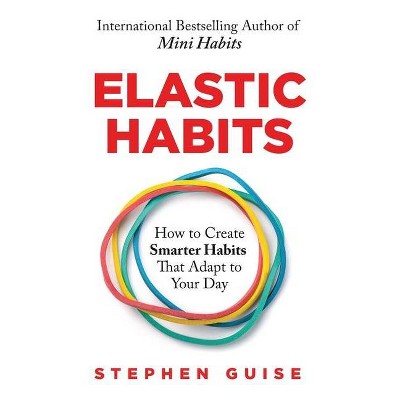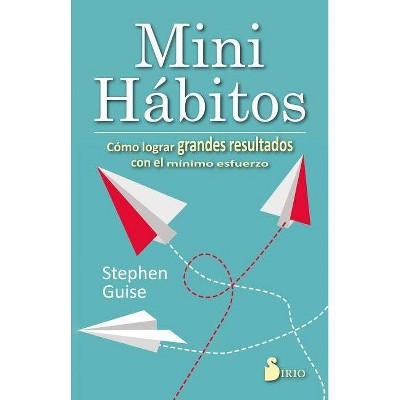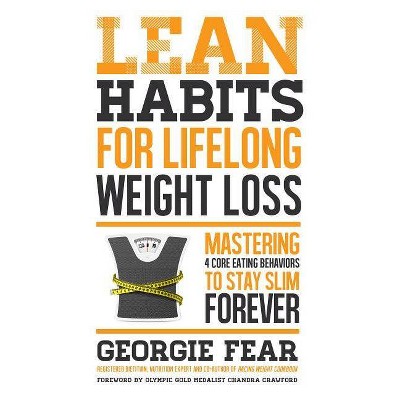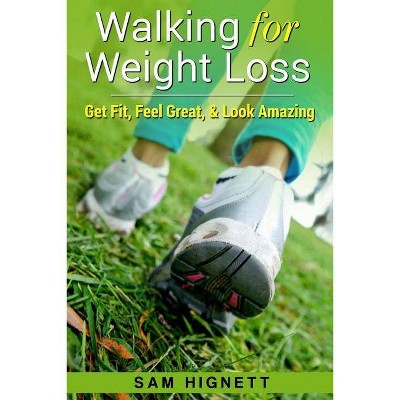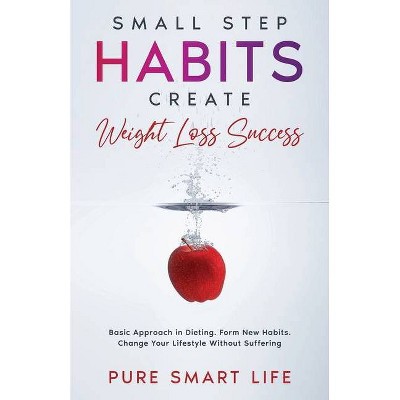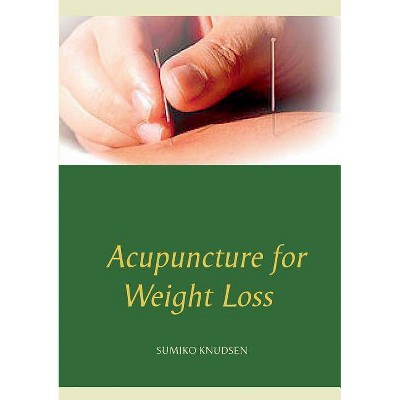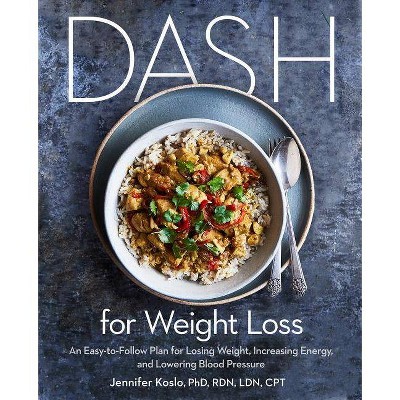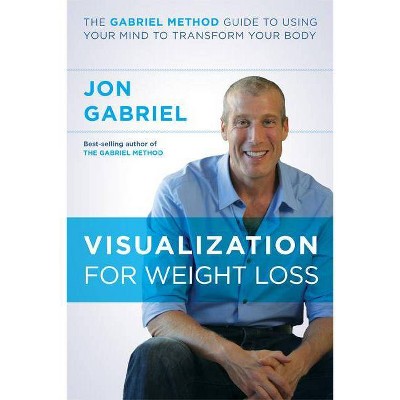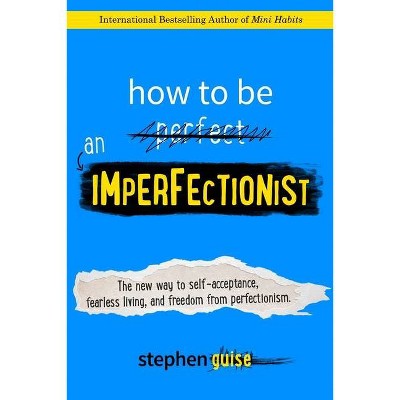Mini Habits for Weight Loss - by Stephen Guise (Paperback)
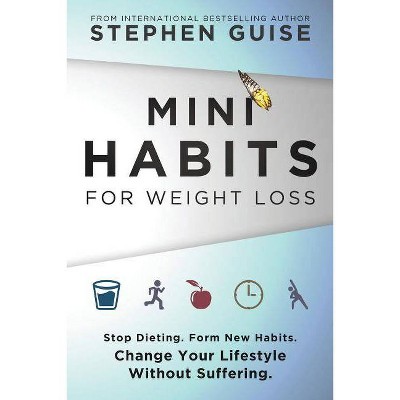
Similar Products
Products of same category from the store
AllProduct info
<p/><br></br><p><b> About the Book </b></p></br></br>"Every person has a diet (noun), but it's only if you are trying to lose weight that you diet (verb). Dieting is eating and drinking sparingly or selectively to reduce your weight. It doesn't work. If you've tried dieting, you know that. Say goodbye to calorie counting, restrictive food bans, or other forced behaviors. [This book promotes losing] weight naturally, in the precise way your body and brain are meant to change and without triggering biological or neurological resistance"--Publisher's description.<p/><br></br><p><b> Book Synopsis </b></p></br></br><strong>You will never diet again.</strong> Say goodbye to calorie counting, restrictive food bans, or other forced behaviors. In <em>Mini Habits for Weight Loss</em>, you will learn how to lose weight naturally, in the precise way your body and brain are meant to change. <strong>We've blamed ourselves for lack of discipline. That didn't help.</strong> <strong>We've blamed calories, carbs, and fat. That didn't help.</strong> <strong>We've blamed our diet formulas. That didn't help.</strong><strong>It's time we looked at the practice of <em>dieting</em>.</strong>Nearly all diets are ineffective because they're based on <em>dieting</em>. Every person has a <em>diet</em> (noun), but it's only if you are trying to lose weight that you <em>diet</em> (verb). <em>Dieting</em> is eating and drinking sparingly or selectively to reduce your weight. It doesn't work. If you've tried dieting, you know that.Even the "perfect diet" with the right foods will fail if it's approached from the traditional dieting perspective. Since weight loss experts are more concerned with biology than neuroscience, we get brilliant discussions on nutrition followed by the same dumb suggestion to "immediately start eating completely different foods than the ones you're habitually used to eating, and give up everything else."<strong>Are You Fighting Your Own Body and Brain?</strong>The brain resists dramatic behavioral shifts. Recognizing this and developing a strategy around it made the original <em>Mini Habits</em> the #1 selling self-help book in a number of countries. In <em>Mini Habits for Weight Loss</em>, you'll see that we also biologically resist such changes, which explains why most dieters and smoothie-cleanse aficionados lose weight in the short term, only to gain it all back (and more) when the body adjusts.<strong><em>Mini Habits for Weight Loss</em> will show you how to make dietary changes in a sustainable, permanent way that doesn't trigger biological or neurological resistance.</strong>It's a specialized version of the method that made the original book a hit in 14 languages. The mini habits remain easy to implement, but the reasoning and supporting tactics are more sophisticated. This is by necessity, as weight loss factors are many and varied. The strategies in the book are rooted in extensive biological and neuroscience research.Instead of reading yet another dieting book, why not try a <em>proven behavioral change strategy</em> that your brain and body will welcome and respond to?<strong>Lasting change won't happen until you take that first step toward a strategy that works. Read <em>Mini Habits for Weight Loss</em>, and never diet again.</strong><p/><br></br><p><b> About the Author </b></p></br></br>Stephen Guise is driven by his desire to find the most effective behavior change strategies. To help others maximize their potential, he has developed an array of unconventional, result-driven ideas. In particular, his ideas of extreme willpower conservation, no-motivation-required action plans, multiple-cue habit formation, success-cycling, and "stupid small" steps form the unique foundation of Mini Habits, which is being published in more than a dozen languages.
Price History
Price Archive shows prices from various stores, lets you see history and find the cheapest. There is no actual sale on the website. For all support, inquiry and suggestion messagescommunication@pricearchive.us
